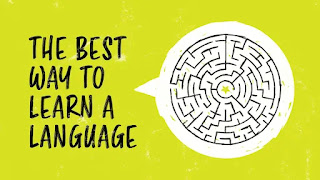Mastering a New Language: Strategies to Improve Your Language Learning Skills
Learning a new language can be a rewarding and intellectually enriching experience. Whether you're doing it for travel, career advancement, or simply to broaden your horizons, language acquisition is a skill that can open doors and connect you with new cultures and people. However, mastering a new language is not always easy. It requires dedication, practice, and effective strategies. In this article, we will explore some valuable techniques to improve your language learning skills and make the journey smoother and more enjoyable.
1. Set Clear Goals
Before embarking on your language learning journey, it's essential to set clear and achievable goals. Ask yourself why you want to learn the language and what level of proficiency you aim to reach. Having specific objectives will help you stay motivated and track your progress effectively.
2. Immerse Yourself
Immerse yourself in the language as much as possible. This doesn't necessarily mean relocating to a foreign country, although that can be immensely beneficial. You can immerse yourself through various means:
Language Apps and Online Resources: Utilize language learning apps like Duolingo, Babbel, or Memrise. These apps offer interactive lessons and exercises that can help build your vocabulary and grammar skills.
Online Language Communities: Join online forums, social media groups, or language exchange platforms where you can interact with native speakers and fellow learners. Engaging in conversations with others can enhance your speaking and listening abilities.
Watch Movies and TV Shows: Watch movies, TV shows, and YouTube channels in the target language. Start with subtitles and gradually switch to the language itself as you become more proficient.
Read Books and Newspapers: Start with simple books, newspapers, or blogs in the target language. Reading material at your level can help expand your vocabulary and improve your comprehension.
3. Consistent Practice
Consistency is key when learning a new language. Dedicate a specific amount of time each day to practice, even if it's just 15-30 minutes. Regular practice helps reinforce what you've learned and keeps your skills sharp.
4. Vocabulary Building
Building a strong vocabulary is fundamental to language learning. Use flashcards, language learning apps, or physical notebooks to compile new words and phrases. Review them regularly to reinforce your memory.
5. Grammar Study
Grammar is the backbone of any language. Invest time in studying the grammar rules of your target language. Many language learning apps and websites offer grammar lessons and exercises.
6. Speak, Speak, Speak
Speaking the language is crucial for fluency. Don't be afraid to make mistakes; they are part of the learning process. Engage in conversations with native speakers, language partners, or even practice speaking aloud when you're alone.
7. Listen Actively
Listening is a skill that often gets overlooked. Practice active listening by tuning in to podcasts, audiobooks, or radio stations in the target language. Try to understand the content without relying on translations.
8. Take Formal Lessons
Consider enrolling in formal language classes or hiring a private tutor. Structured lessons with a qualified instructor can provide valuable guidance and correction.
9. Keep a Language Journal
Maintain a language journal where you write in the target language regularly. You can jot down daily experiences, thoughts, or even translate passages from books you enjoy. This will help reinforce your writing skills.
10. Be Patient and Persistent
Language learning is a journey filled with ups and downs. Be patient with yourself and stay persistent, even when you encounter challenges. Celebrate your successes, no matter how small they may seem.
11. Cultural Awareness
Understanding the culture associated with the language can deepen your connection and comprehension. Explore the history, traditions, and customs of the culture tied to the language you're learning.
12. Use Technology Wisely
Leverage technology to your advantage. Language learning apps, online dictionaries, and translation tools can be valuable resources. However, don't become overly reliant on them, as they can hinder your language development if used excessively.
Learning a new language is a challenging yet highly rewarding endeavor. By setting clear goals, immersing yourself in the language, practicing consistently, and embracing various learning techniques, you can improve your language learning skills significantly. Remember that language acquisition is a gradual process, and with dedication and perseverance, you can achieve your language learning goals and unlock a world of new opportunities, connections, and experiences. So, start your journey today and embrace the joy of becoming multilingual.


Comments
Post a Comment